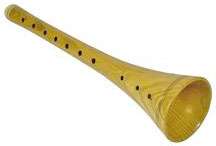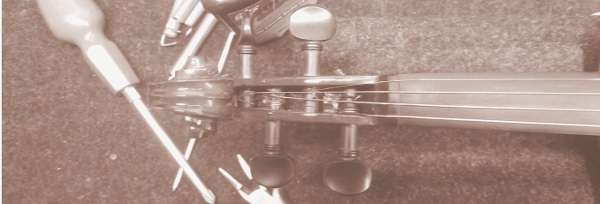
When is an appointment with a violin maker needed?
String instruments require constant care and control of their condition.

They are almost entirely made of wood, which is a living material that reacts to weather conditions and requires special care. For this reason, minor faults and changes may occur many times, which do not indicate a poor quality of the instrument, but more often the owners’ oversight.
The beginning of learning When, as a beginner musician, we decide to buy a factory-made instrument, it is worth checking its condition with a professional before starting work. Incorrectly selected accessories or improper assembly of individual elements of our work tool will make learning difficult and may cause more serious damage with further use. It is worth for the luthier to pay attention primarily to the position and shape of the stand, the position of the soul and the correctness of all dimensions set in the standard.
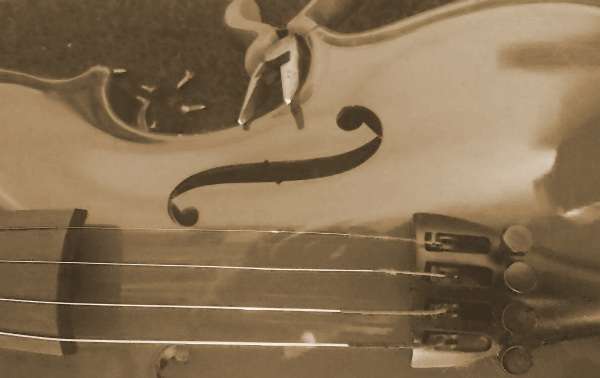
Unwanted noise during the game When you hear a metallic clank when you make a sound from a violin, cello, or viola, it probably means that one of the accessories is loose, making contact with the motherboard, or causing another component to vibrate. It is then necessary to carefully check the tightness of the micro-reeds’ bases, the stability of the chin rest and that it does not touch the tailpiece when pressed. This should fix the buzzing problem.
However, if the instrument generates unwanted noise in addition to the target sound, it may be because the wood has fallen apart or has a micro-crack. Then it is good to “tap” the instrument around the string and sensitize the hearing to the empty sound suggesting the place of unsticking. They are most often found around the waist of the instrument, on the horns or at the neck. If anything disturbing is noticed, a visit to a luthier is necessary to prevent the crack from spreading or the instrument from further sticking.
How to prevent such accidents in the future? Stripping is most often caused by excessive dryness of the air. The optimum humidity is between 40-60%. If it is smaller, most often during the heating period, you need to obtain a humidifier for the instrument. Excessive humidity cannot be helped too much, but it doesn’t hurt as much as dryness. Avoid exposing the instrument (also in a case!) To the sun and extreme temperatures, do not put it close to a radiator and do not leave it in the car.
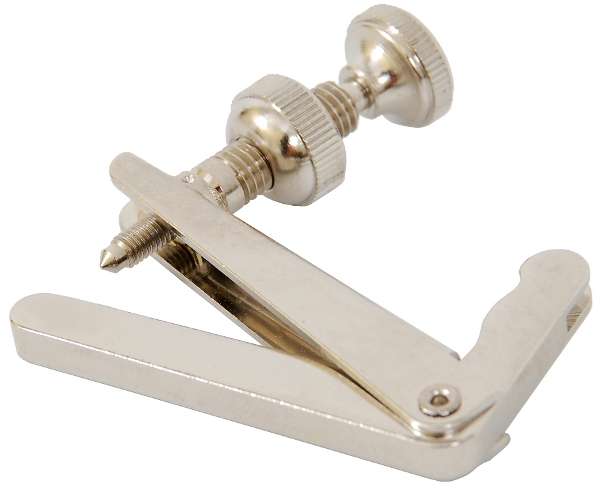
The bow does not catch the strings This situation is most likely due to the lack of rosin on the string. The hair in the new bow should be heavily smeared with rosin to provide it with adequate grip that makes the strings vibrate. Then a visit to a luthier is not needed, and all we have to buy is a good rosin. Another cause of this “fault” could be bristle wear. The string hair, with moderate-intensity exercise, should be replaced about every 5 months, provided that it was not exposed to additional contamination, e.g. touch with fingers, contact with dirty or dusty ground.
An additional symptom of bristle wear is excessive hair loss. For replacement, go to a luthier and leave the bow for a few hours or for the whole day. The new bristles should be smeared with rosin or a luthier asked for it, it is also worth taking care of specialist cleaning of the rod. It also happens that the bristles cannot be stretched and, despite persistently turning the screw on the frog, it remains loose and cannot be played – then it may mean that the thread in the screw is damaged and should be replaced. Depending on the type of frog, it is also best to choose it with the help of a specialist to avoid such problems in the future.
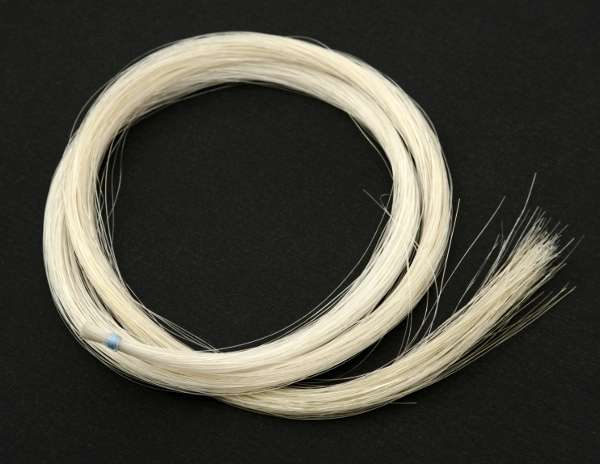
The strings are constantly breaking If the strings you have are recommended by music stores, have a good reputation among active musicians, and you have already broken the strings, the problem is most likely with the instrument. It often happens that the factory instruments do not have carefully selected individual elements. The strings break most often through an excessively sharp fret, on which the string simply breaks. Before putting on the strings, it is worth checking it to avoid losses, and in case of ambiguity, leave the work to the luthier so as not to disturb the appropriate proportions when sawing yourself. Additionally, it is recommended to smear the fret with graphite to reduce string friction.
The violin, viola, cello and even the double bass are extremely delicate instruments due to their intricate construction. Neglected defects can bring great losses and permanent damage to the instruments, so it is worth taking care of its proper storage and general condition – the rosin pollen should be cleaned after each exercise, before putting it into the case, it is good to slightly loosen the bristles and constantly check the position of the stand in relation to the plate (it should be right angle). Tilted stands can tip over, break and damage the record. All these details contribute to the overall health of the instrument, and this is extremely important for a beautiful sound.



